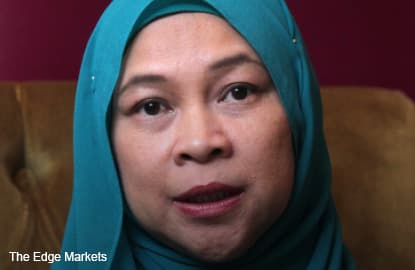
KUALA LUMPUR: Scomi Engineering Bhd (SEB) is looking to penetrate China’s monorail market, specifically the second- and third-tier cities, in order to avoid competition with the major rail companies there. If all things go well, SEB said it could set up presence there within the next six months.
“I’m quite confident [of SEB’s ability to enter China],” said its chief executive officer (CEO) Rohaida Ali Badaruddin. “We know the need to understand different cultures. We have worked in different countries, and we know this could be one of the challenges.
“So, we are making sure that we work on a structure that is workable for any party that we are working with,” Rohaida told reporters after SEB’s annual general meeting yesterday.
At this stage, Rohaida said SEB is talking to a few local companies. The intricacies of working with Chinese companies, she admitted, are something SEB needs to learn and understand better.
She said she doesn’t want to “excite” people just yet with this development as it may take a while before SEB starts getting a slice of the Chinese monorail market — since this is only its first step to enter the world’s second-largest economy. However, what it can do there, she said, is to license its monorail project technology.
“In the world today, there are only Bombardier Inc and Hitachi Ltd that have monorail systems. CRRC (China Railway Construction Corp Ltd) is manufacturing monorails in China based on licensing from Hitachi. Bombardier also has done licensing in China, so Scomi is looking at possible options to enter the market [through licensing].
“Of course we are eyeing some projects there. Potentially, there could be up to 1,000km of monorail line everywhere [in one city]. The target is second- and third-tier cities, so we are not competing with its metro systems. It’s the market size, and of the market, even if we get 10% to 20% of this, it would be significant,” said Rohaida.
She also reiterated what she told The Edge weekly last month, that SEB is looking to bolster its recurring income through operation and maintenance (O&M) contracts. For now, it only provides this kind of service to its Mumbai project. This constitutes just about 5% of its annual group revenue and thus, earnings contribution is almost negligible.
With this track record, Rohaida said SEB will package its future bids for monorail construction together with O&M — which will give it a competitive edge against the other two monorail train builders.
“You know what? Our competitors Hitachi and Bombardier would not have the same capability — they just design and manufacture. For us, we design, manufacture, and then we operate and maintain.
“I think that is our competitive edge; we offer services from end to end,” she added. Rohaida, however, said there is no target for the composition of earnings from O&M to the group going forward.
SEB’s earnings, as Rohaida described them, are “lumpy” because revenue recognition depends on a project’s progress and it can be affected by delays and such. In the first quarter ended June 30, 2016, for example, SEB’s net profit fell 81.47% year-on-year to RM344,000 mainly because of foreign-exchange losses and lower value of work done.
For the full financial year 2016, impairments on receivables as well as provisions for one-off expenses put SEB in a net loss of RM1.84 million, with revenue of RM174.55 million.
Rohaida said SEB will work on retrieving the RM10 million or so owed by the Sao Paulo state government in Brazil, after putting them into impairment this year.
“A legal team had said that we can actually recognise those receivables as profit, but we took a prudent measure to impair them in the last financial year,” she said. “Had we not done the impairment, we could have reported a full-year profit of around RM8 million.”